Contents
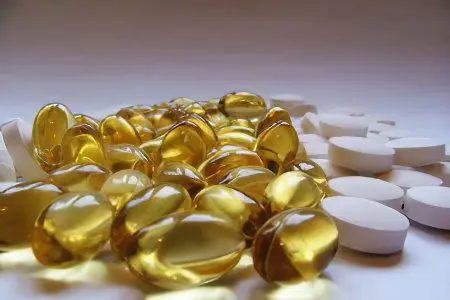
Cirrhosis is a severe disease of the liver, which is expressed in the gradual replacement of its functional cells, hepatocytes, with fibrous (connective) tissue cells. As the number of hepatocytes decreases, it becomes more and more difficult for the liver to cope with its main duties – carbohydrate-lipid metabolism and cleansing the body of toxins. Therefore, a person with cirrhosis acquires an icteric complexion and large-scale malfunctions in the entire digestive system.
With cirrhosis of the liver, the size, shape, density and internal structure of the organ changes. Fibrous fibers penetrate and compress the liver, and the surviving hepatocytes proliferate, trying to compensate for the deficiency. As a result, the liver becomes small, hard and bumpy, but this is not the worst thing. The chaotic growth of hepatocytes often leads to a mutation of their cellular structure, and then they turn into cancer cells.
There are several types of cirrhosis of the liver, depending on the causes of the disease:
Viral cirrhosis is a complication of viral hepatitis;
congestive cirrhosis due to venous congestion in the liver due to chronic heart failure;
Biliary cirrhosis associated with blockage of the bile ducts;
Alcoholic cirrhosis is the result of prolonged alcohol abuse;
Toxic cirrhosis develops under the influence of drugs or poisons that destroy the liver;
idiopathic cirrhosis so called because it has no explicable reason.
Drug treatment of liver cirrhosis
The tactics of conservative treatment of cirrhosis depend on the type and stage of the disease:
Inactive compensated stage of liver cirrhosis does not require the appointment of any drugs, except for vitamin complexes. The patient is shown a diet and following a healthy lifestyle so that the development of the disease stops completely;
Active compensated stage of liver cirrhosis it is treated not only with vitamin therapy, but also with hepatoprotectors – essential phospholipids and herbal preparations based on milk thistle fruit extract. Lipoic acid is usually prescribed 1 tablet 4 times a day, Karsil or its analogue 2 tablets 3 times a day and Essentiale 2 capsules 3 times a day for 1-2 months;
Decompensated stage of liver cirrhosis requires an increase in the dosage of the above hepatoprotectors by 2-3 times and their transfer from oral to injectable form to ensure the best absorption. Additionally, lipotrophic substances (arginine, ornithine, lecithin and others) are prescribed, as well as, if required, hepatoprotectors of animal origin. The course of treatment takes at least three months;
Viral cirrhosis of the liver of medium and high degree of activity treated with corticosteroid hormones. As a rule, prednisone (30 mg/day) is prescribed, and then every two weeks the dosage is reduced by 2,5 mg until maintenance therapy (7,5-15 mg) is reached. The course of treatment lasts 2-3 years;
Cirrhosis of the liver with ascites requires the rejection of salt and daily monitoring of diuresis – it should be below 500 ml / day. Otherwise, the patient is prescribed diuretics and potassium-sparing drugs at a dosage of 150-200 mg / day, followed by a transition to maintenance therapy (100 mg / day). Treatment of cirrhosis with ascites involves the constant use of diuretics for several years;
Primary biliary cirrhosis of the liver incurable. Steroid hormones slightly slow down the course of the disease. Synthetic bile acids and proteolysis inhibitors provide symptomatic relief. Vitamins, lipotropes and plasmaphoresis sessions will also help support the body. Liver transplant indicated.
Hepatoprotectors
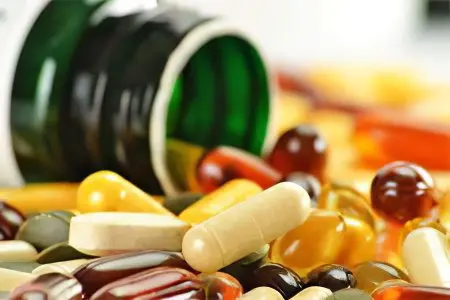
Hepatoprotectors are drugs that have a protective effect on liver cells. This family includes a huge number of drugs, the effectiveness of most of which has not been confirmed by clinical trials. The very concept of “hepatoprotector” is very conditional, and in different countries there are different ideas about which drugs are included in this group.
There is no official registry of hepatoprotectors recognized by the international medical community. About 700 hepatoprotectors are registered in the Russian pharmacopeia, belonging to 16 subgroups, depending on the main active ingredient. However, not all of them are relevant when it comes to serious degenerative liver diseases.
The following types of hepatoprotectors are used to treat cirrhosis:
Essential Phospholipids
Herbal preparations for the treatment of cirrhosis of the liver
Hepatoprotectors of animal origin
Synthetic bile acids
Lipotropic substances
Vitamins for the liver
From our article you will learn absolutely everything about hepatoprotectors and other drugs for the treatment of liver cirrhosis: names and prices, composition and pharmacological action, indications and contraindications, methods of application and side effects.
Essential Phospholipids
Phospholipids are complex fats, the structure of which is formed by fatty acids, phosphoric acid, and sometimes also by a group of nitrogen atoms. The term “essential” means “essential”, and indeed – these lipids are part of absolutely all cell membranes in the human body and play a critical role in maintaining a healthy metabolism.
In the circulatory system, there is a constant exchange of phospholipids between blood plasma and red blood cells – erythrocytes. This process allows non-polar lipids to be kept in solution and transported throughout the body. Thus, without essential phospholipids, the correct balance of carbohydrates, fats and cholesterol would not be possible.
Three types of phospholipids are essential for humans:
Phosphoglycerides;
Phosphosphingolipids;
Phosphoinositide.
But why are essential phospholipids derived from soy the first line of treatment in the treatment of cirrhosis of the liver? The fact is that they inhibit the synthesis of collagen, and at the same time activate collagenase, an enzyme that destroys collagen. But it is collagen that is responsible for the transformation of several types of functional cells into fibrous tissue.
Let’s remember what is “cirrhosis of the liver”? This is a disease caused by the replacement of hepatocytes with fibrous fibers. Obviously, ingestion of essential phospholipids can significantly slow down this process. But don’t reverse it. That is why such drugs help to cure cirrhosis of the liver, and do not relieve the patient from the need to revise the diet and lifestyle. Below you will find comprehensive information on phospholipid drugs for the treatment of liver cirrhosis.
Essentiale Forte N
Analogues: Rezalut Pro, Enerliv, Eslidin
Price range: 200-800 rubles
Active ingredients: essential phospholipids
pharmachologic effect: preserves and restores the cellular structure of hepatocytes, inhibits their replacement by connective tissue cells, normalizes carbohydrate-lipid metabolism, supports the detoxification function of the liver.
Application and dosage: adults and children over 12 years old and weighing more than 43 kg take 2 capsules of the drug 3 times a day with meals, without chewing and with a full glass of water. Course of treatment: at least 3 months.
Indications:
chronic hepatitis;
Cirrhosis of the liver;
Fatty degeneration of the liver;
Toxic and alcoholic liver damage;
Hepatic dysfunction in other somatic diseases;
Severe toxicosis during pregnancy;
Prevention of stone formation in the gallbladder;
Symptomatic treatment of psoriasis;
Recovery after radiation exposure.
Contraindications:
Age up to 12 years;
Individual intolerance to soy phosphatidylcholine.
Side effects: very rarely – dyspeptic disorders and itchy skin rash.
special instructions: well tolerated, does not enter into undesirable interactions with other drugs.
Essliver forte
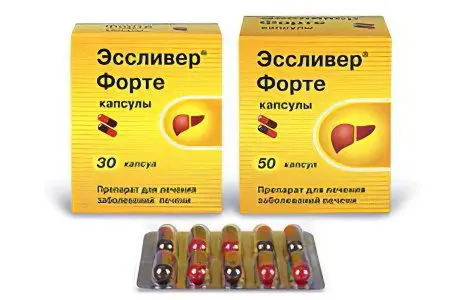
Analogues: Livolin forte, Gepagard
Active ingredients: essential phospholipids, thiamine, pyridoxine, riboflavin, cyanocobalamin, tocopherol, nicotinamide.
Price range: 380-450 rubles
pharmachologic effect: protects liver cells, slows down the transformation of hepatocytes into fibrous cells, saturates the body with all the vitamins necessary to maintain the health of the liver and its normal functioning.
Application and dosage: adults and children over 12 years old, 2 capsules 2-3 times a day with meals, without chewing and drinking a full glass of water. Course of treatment: 3-6 months.
Indications:
Fatty degeneration of the liver;
Chronic hepatitis and cirrhosis;
Disorders of carbohydrate-lipid metabolism;
Toxic, drug, alcohol and radiation poisoning of the body;
Psoriasis (as an addition to the main therapy).
Contraindications:
Age up to 12 years;
Individual intolerance to phospholipids and / or allergy to vitamins that are part of the drug.
Side effects: very rarely – urticaria and a feeling of heaviness in the epigastrium.
special instructions: it is possible to prescribe to children under 12 years of age according to indications and under the supervision of a physician.
Phosphogliv
Analogues: Fosfogliv forte, Fosfogliv lyophilisate
Active ingredients: essential phospholipids, sodium glycyrrhizinate
Price range: 420-1400 rubles
pharmachologic effect: has a combined hepatoprotective and antiviral effect, is used to treat hepatitis and cirrhosis of viral etiology.
Application and dosage: adults and children over 12 years old, 1-2 capsules 2-3 times a day with meals, without chewing and drinking a full glass of water. The lyophilizate is administered intravenously at a dose of 10 ml 2 times a day for 10 days, followed by the transition to oral administration. Course of treatment: 2 months or more.
Indications:
Viral hepatitis;
Cirrhosis of the liver;
Fatty hepatosis;
Alcoholic and toxic liver damage;
Psoriasis, eczema, neurodermatitis (as an additional remedy).
Contraindications:
Age up to 12 years;
Pregnancy and lactation;
Individual intolerance to the components of the drug.
Side effects: very rarely – itchy skin rash.
special instructions: use with caution in patients with portal hypertension, do not mix the lyophilisate with saline or glucose.
Phosphoncial
Analogues: Naturkarsevt
Active ingredients: essential phospholipids, silymarin
Price range: 380-450 rubles
pharmachologic effect: a combination drug that combines the hepatoprotective effect of phospholipids and milk thistle extract. At the same time, it improves liver function and protects its cells from damage, and also prevents their transformation into fibrous tissue.
Application and dosage: 2 capsules 2-3 times a day with meals, without chewing and with a full glass of water. Course of treatment: at least 3 months.
Indications:
Acute and chronic hepatitis of any etiology;
Cirrhosis of the liver;
Gestation;
Radiation sickness;
Hepatic coma;
Violations of fat metabolism;
Toxic and alcoholic liver damage;
Psoriasis, neurodermatitis and eczema (as concomitant therapy).
Противопоказания: individual intolerance to the components of the drug
Side effects: Digestive disorders and skin rashes.
special instructions: children and pregnant women are allowed to use under the supervision of a physician.
Herbal preparations for the treatment of cirrhosis of the liver
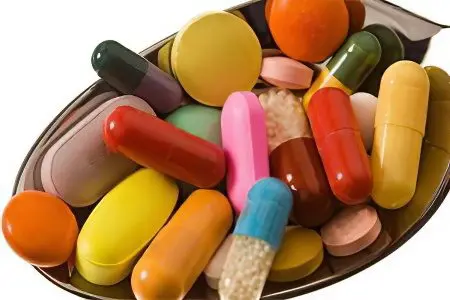
The main active component of the overwhelming number of hepatoprotectors of this group is the extract of an amazing medicinal plant – milk thistle. It is milk thistle that is richest in silymarin, a substance that, like a shield, builds around hepatocytes and protects them from damage.
A direct relative of silymarin, cynarin, which has a similar hepatoprotective effect, is found in large quantities in artichoke seeds, so herbal preparations for the treatment of liver cirrhosis based on this particular vegetable crop are in second place.
An excellent healing effect is also exerted by extracts of cassia, birch, fumes, tansy, yarrow and many other natural ingredients, so the composition of complex herbal preparations for protecting and restoring the liver can be very rich. Below is the most complete information about herbal medicines for the treatment of liver diseases.
Karsil
Analogues: Carsil forte, Legalon, Silymar, Silymarin, Silibinin
Active ingredients: milk thistle fruit extract
Price range: 350-420 rubles
pharmachologic effect: Silymarin, obtained from milk thistle extract, enters into a competitive interaction with toxins that attack hepatocytes, and thus protects liver cells from destruction.
Application and dosage: adults and children over 12 years old, 2-4 tablets 3 times a day. Course of treatment: at least 3 months.
Indications:
Cirrhosis of the liver;
Chronic non-viral hepatitis and the period after it;
Toxic and alcoholic liver damage.
Противопоказания
Age up to 12 years;
Individual intolerance to silymarin.
Side effects: rarely – skin rash, itching, digestive disorders, exacerbation of vestibular disorders.
special instructions: use with caution during pregnancy and endometrial neoplasms. The drug can reduce the absorption of contraceptives and other hormonal agents, as well as enhance the effect of diazepam and related sedatives.
Cinarix
Analogues: Artihol
Active ingredients: artichoke extract
Price range: 320-500 rubles
pharmachologic effect: protects liver cells, lowers blood cholesterol levels, stimulates bile production, enhances intestinal motility.
Application and dosage: adults and children over 12 years old, 1-2 tablets 3 times a day with meals. Course of treatment: 2 weeks or more.
Indications:
chronic hepatitis;
Cirrhosis of the liver;
Dyskinesia of the biliary tract;
Cholelithiasis;
Chronic cholecystitis;
Alcohol intoxication and drug-induced liver injury.
Contraindications:
Acute hepatitis;
severe liver failure;
Empyema of the gallbladder;
Occlusion of the biliary tract;
Individual intolerance to cynarin.
Side effects: rarely – diarrhea and skin rash.
special instructions: artichoke extract has no official drug status, it is a biologically active food supplement. During pregnancy, admission is allowed, but only after consulting a doctor.
Allochol
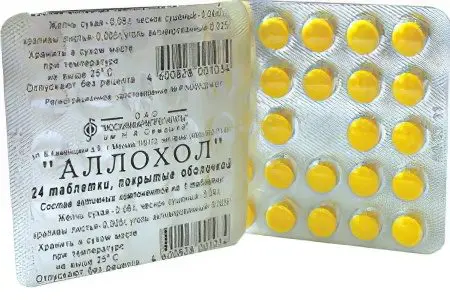
Active ingredients: activated charcoal, dried animal bile, garlic and nettle extracts
Price range: 50-80 rubles
pharmachologic effect: choleretic agent, also enhances the secretory activity of the liver and motor activity of the intestine, prevents the processes of putrefaction in the digestive tract.
Application and dosage: adults and children over 3 years old, 1-2 tablets 3 times a day after meals. Course of treatment: from 3 weeks to 2 months.
Indications:
chronic hepatitis;
Cirrhosis of the liver;
Cholecystitis and cholangitis;
Atonic constipation;
Dyskinesia of the biliary tract;
period after cholecystectomy.
Contraindications:
Ulcer of the stomach and 12 duodenal ulcer;
Acute hepatitis;
Calculous cholecystitis;
obstructive jaundice;
Acute pancreatitis;
Liver dystrophy in acute and subacute stages;
Individual intolerance to the components of the drug.
Side effects: stool disorders and skin rashes.
Gepabene
Active ingredients: milk thistle fruit extract and fumigation herb extract
Price range: 450-520 rubles
pharmachologic effect: the hepatoprotective effect of silymarin is combined with the choleretic, antispasmodic and analgesic effect of the fumarin alkaloid contained in the fumes.
Application and dosage: Only for adult patients, 1 capsule 3 times a day with meals with a small amount of water. With severe pain syndrome, you can increase the dosage to 6 capsules per day, the last one before bedtime. Course of treatment: from 2 weeks to 3 months.
Indications:
Dyskinesia of the biliary tract;
chronic hepatitis;
Cirrhosis of the liver;
The period after cholecystectomy;
Toxic damage to the liver.
Contraindications:
Age up to 18 years;
Acute hepatitis and any other acute inflammatory processes in the digestive system.
Side effects: diarrhea, urticaria, increased diuresis.
special instructions: use with caution during pregnancy and lactation.
from Sibek
Active ingredients: extracts of milk thistle fruit, birch leaves, St. John’s wort and tansy flowers.
Price range: 110-140 rubles
pharmachologic effect: hepatoprotective, choleretic, antioxidant and membrane stabilizing.
Application and dosage: adults and children over 12 years old, 2 tablets 4 times a day 20 minutes before meals. Course of treatment: 20-45 days.
Indications:
chronic hepatitis;
Cirrhosis of the liver;
Chronic cholecystitis;
Dyskinesia of the gallbladder;
Fatty degeneration of the liver.
Contraindications:
Cholelithiasis;
Age up to 12 years;
Pregnancy and lactation;
Individual intolerance to the components of the drug.
Side effects: rarely – local allergic reactions.
Bonjigar
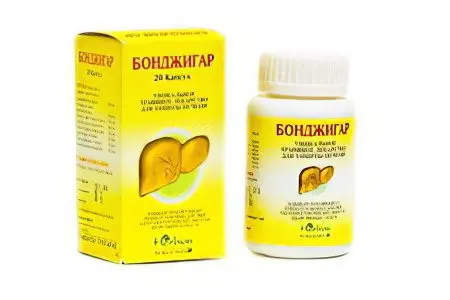
Active ingredients: extracts of milk thistle, picrorhiza kurroa, white eclipta, black nightshade, licorice, chicory, tamarix, barberry, radish, spheranthus and berhavia.
Price range: 130-250 rubles
pharmachologic effect: protects liver cells, lowers cholesterol and bilirubin levels, regulates enzyme balance.
Application and dosage: only for adult patients, 1 capsule or 10 ml of syrup 3 times a day after meals. Course of treatment: 6-12 weeks.
Indications:
chronic hepatitis;
Cirrhosis of the liver;
Alcoholic steatohepatitis.
Contraindications:
Age up to 18 years;
Pregnancy and lactation;
Individual intolerance to the components of the drug.
Side effects: very rarely – allergic skin reactions.
special instructions: diabetics should take into account that the syrup contains sugar.
Galstena
Active ingredients: sodium sulfate, phosphorus, extracts of milk thistle, dandelion and celandine.
Price range: 180-260 rubles
pharmachologic effect: a complex drug that has a choleretic, hepatoprotective, antispasmodic and anti-inflammatory effect. In addition, it enhances the motor functions of the digestive organs and prevents the formation of gallstones.
Application and dosage: adults and children over 1 year old, 1-10 drops 3 times a day with meals. Course of treatment: at least 3 months.
Indications:
chronic hepatitis;
Fatty hepatosis of the liver;
Chronic pancreatitis;
Cirrhosis of the liver;
Chronic cholecystitis.
Contraindications:
Chronic alcoholism;
Individual intolerance to the components of the drug.
Side effects: very rarely – increased salivation.
special instructions: during the storage period, the drug may become cloudy, this is a natural process that does not affect its effectiveness. Pregnant and lactating women are allowed.
Dipana
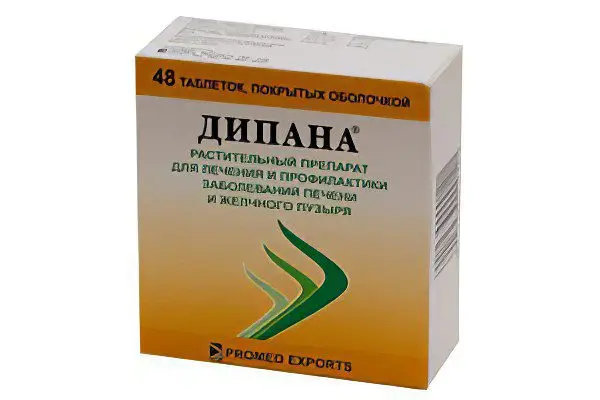
Active ingredients: extracts of picrorhiza curroa, andrographis paniculata, white eclipta, philanthus niruri, black nightshade, tinospora cordifolia, water hyssop, spreading boerhavia, ginger officinalis and long pepper.
Price range: 280-360 rubles
pharmachologic effect: protects cell membranes of hepatocytes from damage, stimulates the synthesis of amino acids and the replacement of diseased cells with healthy ones, protects the liver from the toxic effects of alcohol and hepatotoxic drugs.
Application and dosage: adults and children over 10 years old, 2-3 tablets 2 times a day 30 minutes before meals with a full glass of water. Course of treatment: 8-12 weeks.
Indications:
Fatty hepatosis;
Cirrhosis of the liver;
chronic hepatitis;
Toxic and alcoholic liver damage.
Contraindications:
Age up to 10 years;
Pregnancy and lactation;
Individual intolerance to the components of the drug.
Side effects: dry mouth, nausea, diarrhea, rash, headache, insomnia, increased diuresis.
LIV-52
Active ingredients: iron oxide, extracts of chicory, caper roots, black nightshade, cassia seeds, chebula terminalia, tamarix galis, yarrow herb, eclipta alba, tinospora cordifolia, bergavia sprawling, philanthus niruri, common radish, officinalis emblica, currant emblica, officinalis fumes, and pigweed Ceylon.
Price range: 350-500 rubles
pharmachologic effect: hepatoprotective, antispasmodic, antioxidant, anti-inflammatory, choleretic, anti-anorexic. The drug improves digestion, increases appetite, speeds up metabolism and prevents the formation of gallstones. With prolonged abuse of alcohol, to some extent protects the liver from the destructive effects of acetaldehyde.
Application and dosage: adults and children over 2 years old popo 2 tablets 3 times a day before meals. Course of treatment: 6-12 weeks.
Indications:
Prevention of drug, toxic and alcoholic liver damage;
Chronic hepatitis of any etiology;
Fatty hepatosis and cirrhosis of the liver;
Anorexia.
Противопоказания: pregnancy and lactation.
Side effects: local allergic reactions and dyspeptic disorders.
special instructions: drops do not contain alcohol, so they can be given to children as prescribed by a doctor. Persons with acute inflammatory diseases of the digestive system should be used with caution.
Hepatoprotectors of animal origin
This group of drugs for the treatment of cirrhosis includes sublimates and hydrolysates of the liver of pigs and cattle. It is assumed that they can compensate for the deficiency of human own hepatocytes, but the mechanism of this compensation looks very controversial, and the effectiveness of the drugs has not yet been confirmed by authoritative clinical trials.
Moreover, liver sublimates and hydrolysates are powerful allergens and can cause severe side effects, so the decision to prescribe such drugs should only be made by a qualified doctor after a thorough examination and weighing all the pros and cons. Hepatoprotectors of animal origin are available only by prescription. The following are their names, and complete information on the procedure for treating cirrhosis of the liver with them.
Hepatosan
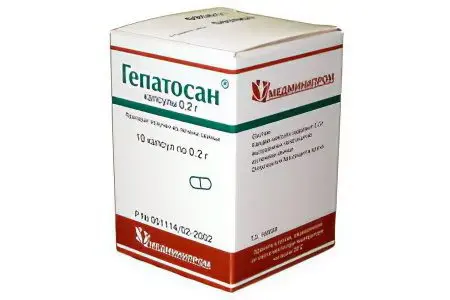
Analogues: Hepatamine
Active ingredients: freeze-dried porcine liver cells
Price range: 360-430 rubles
pharmachologic effect: detoxifying and hepatoprotective, also stimulates hematopoietic functions and regulates the synthesis of amino acids.
Application and dosage: adults and children over 3 years old, 1-2 capsules 2 times a day 15 minutes before meals with a small amount of water. Course of treatment: 10-20 days, with cirrhosis of the liver, the drug can be taken continuously.
Indications:
Chronic hepatitis of any etiology;
Fatty degeneration of the liver;
Alcohol and drug intoxication;
Cirrhosis of the liver.
Противопоказания: individual intolerance.
Side effects: allergic reactions.
Sirepar
Active ingredients: bovine liver hydrolyzate
Price range: 800-1200 rubles
pharmachologic effect: protects the liver from fatty infiltration, regulates the synthesis of choline and methionine, has a detoxifying effect on the body.
Application and dosage: adults and children older than 1 year, the drug is administered intramuscularly or intravenously, 2-3 ml 1 time per day. Course of treatment: 2-6 weeks.
Indications:
Cirrhosis of the liver;
Fatty hepatosis;
chronic hepatitis;
Alcoholic and toxic liver damage.
Contraindications:
Pregnancy and lactation;
Individual intolerance.
Side effects: local allergic reactions, dyspeptic disorders, fever, epigastric pain.
Progepars
Active ingredients: bovine liver hydrolyzate, choline, cysteine, inositol and cyanocobalamin.
Price range: 1200-5000 rubles
pharmachologic effect: protects hepatocyte membranes from external damage, stimulates the renewal of liver cells and prevents their replacement with fibrous fibers, increases diuresis and normalizes bile production.
Application and dosage: only for adult patients, 1-2 tablets 3 times a day before meals, without chewing and drinking half a glass of water. The course of treatment is selected individually.
Indications:
chronic hepatitis;
Fatty degeneration of the liver of any origin;
Alcoholic liver failure;
Cirrhosis of the liver;
Drug intoxication of the body;
Neurodermatitis, eczema, psoriasis;
Radiation sickness;
Prevention of liver damage during treatment with cytostatics.
Contraindications:
Age up to 18 years;
Pregnancy and lactation;
Individual intolerance.
Side effects: local allergic reactions and dyspeptic disorders.
Synthetic bile acids
Modern medicine knows two bile acids that can regulate the composition and properties of human bile: chenodeoxycholic and ursodeoxycholic. Both of them are successfully obtained synthetically and are included in the international pharmacological registry under the code A05A (“Preparations for the treatment of diseases of the biliary tract”). Chenodeoxycholic acid is most relevant in the treatment of cholelithiasis, but we are more interested in the second, ursodeoxycholic acid, since very effective drugs for the treatment of liver cirrhosis are made on its basis.
Ursodeoxycholic acid, when taken orally, has the following types of therapeutic effects on the body:
Inhibits the synthesis of cholesterol by the liver and interferes with its absorption in the intestine;
Increases the solubility of cholesterol and reduces its concentration in bile;
Stimulates the production of bile, gastric juice and pancreatic juices;
Enhances the action of lipase – an enzyme responsible for the breakdown of fats;
Reduces blood sugar levels;
It has an immunomodulatory effect on the liver;
Promotes the dissolution and evacuation of gallstones.
There are many drugs for the treatment of liver cirrhosis based on ursodeoxycholic acid, they all have a similar composition and pharmacological action, and only slightly differ in dosage.
Flowed
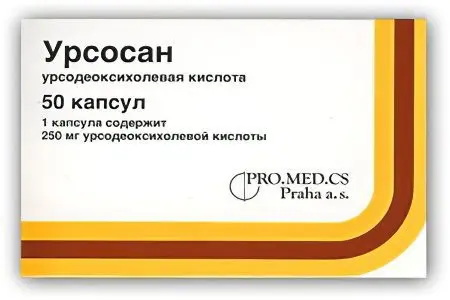
Analogues: Ursofalk, Urdoksa, Ursodez, Ursoliv, Exhol, Livodex
Active ingredients: ursodeoxycholic acid
Price range: 160-2500 rubles
pharmachologic effect: stimulates the production of bile, lowers blood cholesterol, accelerates the metabolism of fats in the body and has some immunomodulatory effects on the liver.
Application and dosage: for adults and children, the daily dose is calculated based on age, body weight and severity of the disease, ranges from 10 to 15 mg per 1 kg of weight, and is divided into 3 doses. The course of treatment is not limited in time, and depends on the indications.
Indications:
Acute and chronic hepatitis;
Uncomplicated gallstone disease;
Primary biliary cirrhosis of the liver;
Alcoholic and non-alcoholic steatohepatitis;
Primary sclerosing cholangitis;
cystic fibrosis;
Dyskinesia of the biliary tract;
Biliary reflux gastritis and reflux esophagitis;
Toxic and drug damage to the liver;
Prevention of hepatic complications during long-term treatment with cytostatics and hormones.
Contraindications:
Acute cholangitis and cholecystitis;
Gallstones visible on X-ray;
Empyema or complete failure of the gallbladder;
Fistulas in the gastrointestinal tract;
Decompensated cirrhosis of the liver;
Severe renal and / or liver failure;
Acute infectious diseases of the biliary tract and bladder;
Individual intolerance to ursodeoxycholic acid.
Side effects: nausea, diarrhea, constipation, vomiting, rarely – calcification of gallstones.
special instructions: the drug is used during pregnancy only if the possible harm is less than the expected benefit. Children under 5 years of age are prescribed with caution. The removal of gallstones with the help of the drug is possible only if the stones consist of cholesterol, and not of calcium, and their total volume does not exceed half the volume of the gallbladder.
Lipotropic substances
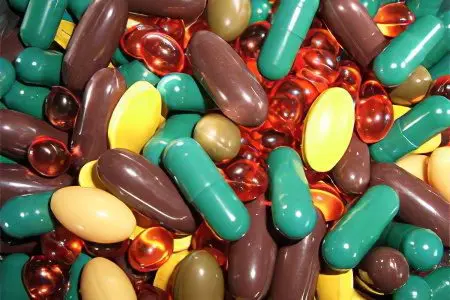
Lipotropic substances are mainly valuable amino acids that regulate carbohydrate-fat metabolism, reduce the level of low-density lipoproteins (LDL, “bad cholesterol”) in the blood, stimulate fat oxidation by activating the lipase enzyme, and thus protect the liver from fatty infiltration.
According to the international pharmacological registry, lipotropic substances are included in the list under the code A05 – “Drugs for the treatment of diseases of the liver and gallbladder”, are synthesized artificially or isolated from natural raw materials, and in most countries belong to the group of “hepatoprotectors”.
For the treatment of cirrhosis of the liver, preparations containing the following lipotropic substances are used:
Choline;
Carnitine;
Methionine;
Ademethionine;
Lecithin;
Betaine;
Ornithine;
Arginine;
Cysteine;
Inositol.
Preparations of this group are one of the listed biologically active substances, or a complex of several lipotropes that protect and restore the liver.
Heptral
Analogues: Heptor
Active ingredients: ademetionine
Price range: 1000-2500 rubles
pharmachologic effect: choleretic, cholekinetic, detoxifying, regenerating, antioxidant, hepatoprotective, antifibrosing, neuroprotective and antidepressant.
Application and dosage: only for adult patients, the dose is calculated based on 15-25 mg of the drug per 1 kg of body weight per day, the duration of treatment is determined individually.
Indications:
Fatty degeneration of the liver;
Chronic acalculous cholecystitis;
Cirrhosis of the liver;
Encephalopathy;
Liver failure;
Intrahepatic cholestasis;
Depression.
Contraindications:
Age up to 18 years;
Individual intolerance to ademetionine;
Congenital disorders of methionine metabolism.
Side effects: nausea, vomiting, diarrhea, bloating, flatulence, epigastric pain, shortness of breath, laryngeal edema, tachycardia, bronchospasm, skin rashes, headache, insomnia, phlebitis of superficial veins, fever.
special instructions: Pregnant women are prescribed with caution, not recommended for patients with bipolar mental disorders and a history of suicide.
Glutargin-alcoclin
Active ingredients: arginine glutamate
Price range: 150-200 rubles
pharmachologic effect: neutralizes and removes from the body a dangerous metabolic waste – ammonia, and also has a hepatoprotective, antioxidant, membrane-stabilizing and antihypoxic effect.
Application and dosage: only for adults, 2 tablets 1-2 hours before drinking alcohol, or 1 tablet 1 hour before taking, and the second half an hour after the start of drinking alcohol. The drug can be used as part of complex hepatoprotective therapy, then the dosage and duration of treatment are determined individually.
Indications:
Prevention of alcohol intoxication;
Detoxification of the body with prolonged alcohol abuse;
Prevention and relief of hangover syndrome.
Contraindications:
Age up to 18 years;
Pregnancy and lactation;
Individual intolerance to arginine;
Creatinine clearance less than 30 ml/min.
Side effects: very rarely – nausea and a feeling of heaviness in the epigastrium.
special instructions: diabetics should be aware that arginine may slightly increase insulin synthesis.
Gepa-merz
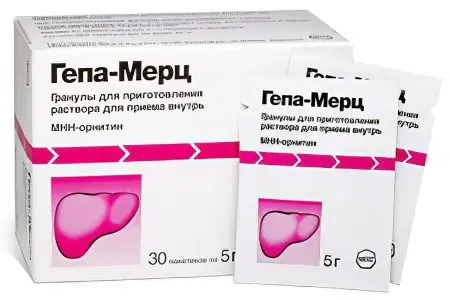
Analogues: Ornilatex
Active ingredients: ornithine
Price range: 700-3500 rubles
pharmachologic effect: reduces the level of ammonia in the blood in functional liver diseases, increases the production of insulin and improves protein metabolism.
Application and dosage: only for adults, from 4 to 8 ampoules of the drug per day is administered intravenously as part of an infusion solution. The duration of the course of treatment is determined individually.
Indications:
Hepatic encephalopathy, coma and precoma;
Acute and chronic liver diseases, accompanied by an excess of ammonia.
Protein deficiency in patients on parenteral feeding.
Contraindications:
Age up to 18 years;
lactation period;
severe renal failure;
Individual intolerance to ornithine.
Side effects: rarely – nausea, vomiting and local allergic reactions.
special instructions: use with caution during pregnancy, in case of severe nausea, reduce the rate of intravenous administration.
Betargin
Active ingredients: arginine and betaine
Price range: 1000-2500 rubles
pharmachologic effect: prevents the development of fatty hepatosis, removes residual toxic nitrogen from the body, has an antioxidant, antihypoxic and anti-inflammatory effect, reduces the frequency and pain of dyspeptic disorders against the background of liver dysfunctions.
Application and dosage: adults only, one ampoule 3 times a day, pour into half a glass of water and drink immediately after meals. Course of treatment: 2-6 months.
Indications:
Acute and chronic hepatitis of any origin;
Cirrhosis of the liver;
Fatty hepatosis;
alcoholic liver disease;
non-alcoholic steatohepatitis;
Toxic and medicinal lesions of the liver.
Contraindications:
Age up to 18 years;
Pregnancy and lactation;
Individual intolerance to betaine and / or arginine.
Side effects: rarely – allergic rashes and digestive disorders.
special instructions: arginine to some extent stimulates the synthesis of insulin, this fact should be taken into account for diabetics.
Heptrong
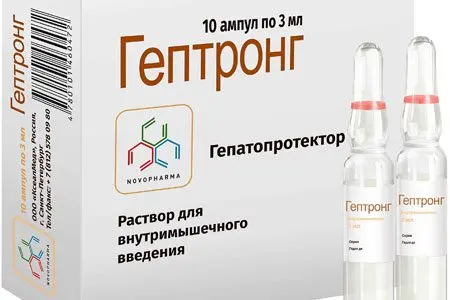
Active ingredients: low molecular weight sugars
Price range: 5000 rubles
Pharmachologic effect: enhances the antitoxic function of the liver, has an antifibrotic effect, stimulates its own regeneration, improves the functioning of enzyme systems, reduces the activity of markers of hepatocyte damage – enzymes ALT, AST, alkaline phosphatase, GGTP.
Application and dosage: the drug is administered intramuscularly once a day according to the scheme, which is determined depending on the type of disease.
The drug can be used as part of complex therapy in the following conditions:
non-alcoholic steatohepatitis;
drug-induced liver injury;
cirrhosis at any stage;
fatty degeneration of the liver;
toxicosis of pregnant women.
Contraindications: sensitivity and intolerance to bee products, hymenoptera venom.
Side effects: individual intolerance, sometimes – increased appetite.
Vitamins for the liver
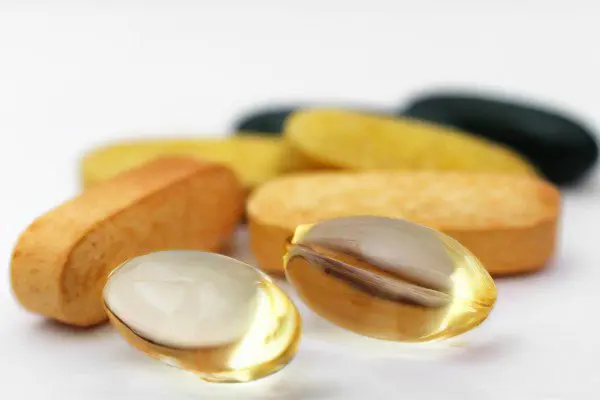
The body of a patient with cirrhosis of the liver is in dire need of vitamins. The most important among them are A, C, E and lipoic acid. In addition, vitamins B1, B2, B3, B6, B9, B12 and P are required to maintain the normal course of intracellular chemical reactions in the liver. Cirrhosis causes functional disorders throughout the digestive system, one of the consequences of which is insufficient absorption of fat-soluble vitamins D and K, so the doctor may recommend them to the patient as an additional therapy.
With cirrhosis of the liver, the following vitamins are prescribed:
Vitamin A (retinol) is essential for adequate bile production and liver glycogen storage;
Vitamin C (ascorbic acid) boosts immunity, strengthens vascular walls and cell membranes and fights free radicals;
Vitamin E (tocopherol) maintains the stability of liver cells, stimulates lipid metabolism and protects against fatty degeneration;
Vitamin B1 (thiamine) in the body turns into cocarboxylase, a coenzyme of the most important enzymatic reactions on which energy metabolism depends;
Vitamin B2 (riboflavin) is responsible for the production of red blood cells and blood oxygenation, and is also involved in cellular reactions inside the liver;
Vitamin B3 (niacin) in the body turns into nicotinamide, necessary for the proper metabolism of proteins, amino acids, lipids and purines;
Vitamin B6 (pyridoxine) supports the functioning of the nervous system, is involved in the synthesis of hemoglobin and reduces LDL levels;
Vitamin B9 (folic acid) provides a healthy blood composition, regulates the level of leukocytes and hemoglobin, participates in the synthesis of nucleic acids and improves immunity;
Vitamin B12 (cyanocobalamin) is an indispensable participant in the reactions responsible for the formation of proteins and amino acids, the formation and renewal of tissues;
Vitamin P (rutin) protects blood vessels and capillaries from fragility and prevents the formation of edema in the body;
Cocarboxylase (thiamine pyrophosphate) thiamine-containing coenzyme, which is necessary for proper carbohydrate-protein metabolism and nutrition of the nervous system.
Lipoic (thioctic) acid contributes to an increase in glycogen stores in the liver, a decrease in blood sugar and cholesterol levels, an active lipid-carbohydrate metabolism and the maintenance of liver functions. In addition, it is a powerful natural antioxidant.
Vitamin preparations are always used to treat cirrhosis of the liver, but only a doctor can determine which vitamins a patient needs based on a blood test. Keep in mind that vitamin-mineral complexes taken uncontrollably and without medical indications often cause allergic reactions and side effects.
Berlition
Analogues: Espa-lipon, Thioctacid, Octolipen, Neurolipon
Active ingredients:ethylenediamine salt of thioctic (lipoic) acid
Price range: 400-800 rubles
pharmachologic effect: fights free radicals, reduces blood sugar and cholesterol levels, increases glycogen stores in the liver, accelerates the metabolism of fats and carbohydrates.
Application and dosage: only for adult patients, once a day, 30-300 mg (600-1 ampoules) of the drug is administered drip for 2 minutes. Course of treatment: 2-4 weeks. Then it is recommended to transfer the patient to oral lipoic acid.
Indications:
Cirrhosis of the liver;
Diabetic and alcoholic polyneuropathy.
Contraindications:
Age up to 18 years;
Pregnancy and lactation;
Individual intolerance to lipoic acid.
Side effects: nausea, vomiting, convulsions, thrombophlebitis, hemorrhagic purpura, hypoglycemia, allergic reactions (including anaphylactic shock), redness and burning at the injection site of the needle.
special instructions: You can not take alcohol, diabetics need to constantly monitor the level of glucose in the blood, especially in the first days of treatment.
Pyridoxal phosphate
Active ingredients: pyridoxal phosphate
Price range: 120-200 rubles
pharmachologic effect: reduces blood lipids, including LDL, increases glycogen stores in the liver, stimulates its detoxifying properties, participates in histamine metabolism, is absorbed better and faster than other forms of vitamin B6.
Application and dosage: adults and children over 5 years old, 10-40 mg of the drug 3-5 times a day, 15 minutes before meals. Course of treatment: 10-30 days.
Indications:
Treatment of hypovitaminosis B6 and diseases developing against its background, including anemia, leukopenia, exudative diathesis and atopic dermatitis;
Maintaining the body of patients with heart failure, liver cirrhosis, chronic hepatitis;
Relief of the condition of pregnant women with severe toxicosis;
Prevention of liver damage during long-term treatment of tuberculosis.
Contraindications:
severe liver failure;
Individual intolerance to pyridoxine.
Side effects: rarely – allergic skin rashes and a slight decrease in the acidity of gastric juice.
special instructions: use with caution in coronary heart disease and stomach ulcers.
Diuretics for cirrhosis of the liver
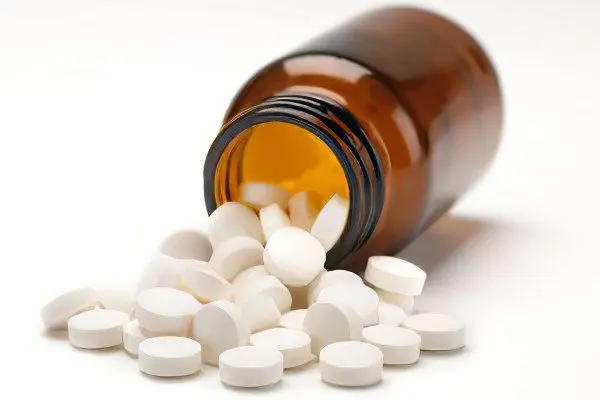
The opinion that diuretics are indicated only at the active stage of decompensated liver cirrhosis, accompanied by ascites, is erroneous. It is much more reasonable to prescribe prophylactic diuretics immediately after the transition of cirrhosis to the active stage, since ascites in such patients is almost inevitable, it is only a matter of time.
Even at the stage of hepatitis, stagnation occurs in the liver: a blockade of venous blood is formed, and, as a result, increased production of lymph. This process, in turn, leads to a drop in plasma pressure and a decrease in the total volume of circulating blood. The body tries to remedy the situation by sending signals to the adrenal glands to produce more of the hormone aldosterone.
Excess aldosterone causes fluid to constantly accumulate and linger, causing swelling of the extremities and internal organs. To prevent edema from turning into ascites, a patient with cirrhosis of the liver needs to review the diet, monitor daily diuresis and start taking diuretics at the first sign of edema.
For the treatment of liver cirrhosis, diuretics are used that belong to the following pharmacological groups:
Aldosterone antagonists;
Thiazide;
Potassium-sparing agents;
loop diuretics;
carbonic anhydrase inhibitors.
The selection of the drug should be carried out by the doctor, based on the results of the tests and a thorough examination. Self-administration of diuretics for hepatitis and liver cirrhosis is strictly contraindicated, since these drugs differ greatly in composition and principle of action, and the wrong choice of diuretic can harm you. Take care of yourself and be healthy!









